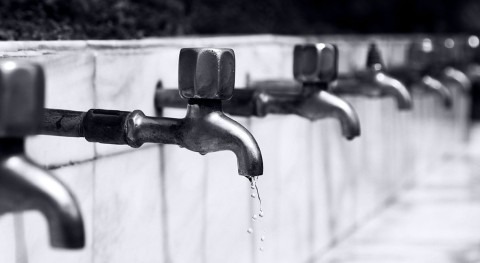The House passed a major defense spending bill last Friday that includes important amendments requiring the Defense Department and the Environmental Protection Agency to monitor and clean up the toxic fluorinated chemicals known as PFAS.
The package of amendments, added to the National Defense Authorization Act for FY 2020 that the House passed, will:
- Quickly phase out military use of PFAS in firefighting foam.
- End the use of PFAS in military food packaging.
- Expand water quality monitoring for PFAS.
- Ensure proper incineration of military PFAS wastes.
- Accelerate PFAS clean-ups at military facilities.
- Provide an additional $5 million for a PFAS study by the Agency for Toxic Substances and Disease Registry.
- Designate PFAS as “hazardous substances” under CERCLA, the Superfund law.
- Require the Government Accountability Office to study Defense Department cleanup efforts.
- Create an online health database for military personnel.
PFAS chemicals linked to cancer and reproductive harm have been found in the drinking water of millions of Americans. Under current law, there are no limits on PFAS discharges into the air and water, no requirements to filter contaminated water, and no requirements to clean up legacy PFAS contamination.
“This vote marks a turning point, with Congress actively pursuing plans to help combat the ballooning PFAS contamination crisis that is impacting military bases and nearby communities throughout the country,” said Scott Faber, EWG senior vice president for government affairs. “The Trump administration may continue to shun its responsibility to protect Americans from these toxic chemicals, but members of Congress, on both sides of the aisle, clearly understand the urgency and focus needed to address this out-of-control situation.”
Earlier this week, President Trump threatened to veto the defense spending bill if it contained language requiring the Pentagon to clean up PFAS contamination at military installations around the country.
EWG has been one of the leading public interest groups pressing Congress to take action on PFAS contamination, meeting with more than 300 members and staff in the past year. In addition, researchers with EWG have used federal- and state-level data to produce a series of reports mapping PFAS contamination of locations nationwide, including drinking water supplies and military bases.
EWG also wrote legal analyses to share with lawmakers, held multiple news conferences, organized two fly-ins that brought a number of people affected by PFAS contamination to Washington to press members of Congress to act, and generated more than 45,800 emails and phone calls into congressional offices.



















